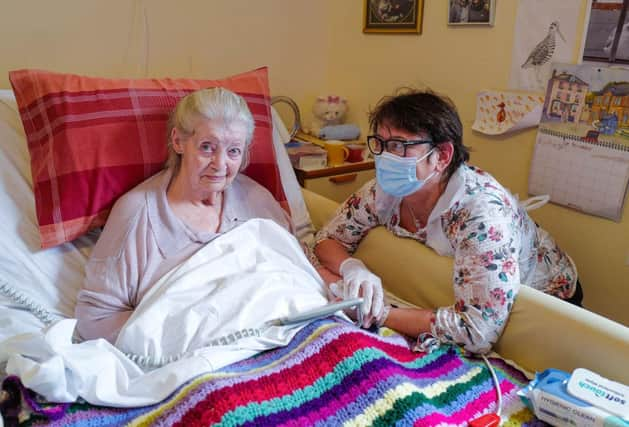SNP government fails care workers while using an age-old excuse why they can't do the right thing – Brian Wilson


Within these parameters most politics are conducted and when there is no overall control of government, negotiated. This week, a huge chance was missed for Scotland to make a powerful statement about priorities.
By courtesy of the Scottish budget, the pay of care workers will increase by the princely sum of 20 pence per hour taking them to £9.50. Think of how many claps equate to 20p.
Advertisement
Hide AdAdvertisement
Hide AdThere was an alternative, in the spirit of the times and of common decency. Labour, through Jackie Baillie, proposed £12 an hour as a condition of supporting the SNP’s budget.
Any chance of this even being negotiated around, was scuppered with the annual pantomime of the Greens “winning” concessions which weren’t concessions at all. The carers went to the back of the queue.
Long before Holyrood existed, Scotland frequently exercised the power to do things more progressively in health and social care than the rest of the UK. Here was an opportunity – with vastly increased powers and budget – to show such moral leadership and political creativity can still prevail.
‘Unaffordable’ for some
Patrick Harvie, the Greens’ coat-tails hanger in chief, claimed the Scottish government cannot set wages in the private sector, never having heard of the National Care Home Contract which effectively gives that power in recognition of 84 per cent of care costs coming from the public purse.
Very recently, a committee chaired by Derek Feeley reported on the future of social care in Scotland and recommended a National Care Service with the same status as the NHS. It was a well-argued report to which the pay and status of care workers is fundamental.
Disregarding it so promptly in this budget is not encouraging. Kate Forbes the Finance Secretary, said it would cost £400 million to meet Labour’s demand and this was unaffordable. But then, politics is the language of priorities.
It is also worth noting that “undervalued and under-appreciated” local authorities had another harsh settlement. Cosla say pay increases will have to be met from existing services, which is a direct blow to their own role in providing care, mainly in people’s homes.
There is, as frequently demonstrated, huge headroom within the Scottish budget. Making a big statement about care would cost money but what is the point of politics if not, occasionally, to make big statements to secure irreversible change?
Marginalised and undervalued
Advertisement
Hide AdAdvertisement
Hide AdAnyway, the Feeley Report debunks the cost arguments and asserts that investment in care should be regarded as a generator of economic benefit rather than a cost to be borne.
It also makes this timely point: “The social care workforce in Scotland is so notably disadvantaged because it is highly gendered. The sector is about 83 per cent female. Were it 83 per cent male, it simply would not be marginalised and undervalued as it is.”
The care sector struggles to recruit yet demands are only increasing. Will 20p an hour attract a single individual? If not, why has the can been kicked down the road to a point where recruitment will be even more challenging?
Also there are obvious areas for savings. One under-reported aspect of the pandemic was the speed at which hospital patients were discharged into care homes. The policy was catastrophic but the point was made – bed-blocking is avoidable. The Feeley Report put the annual cost at £134 million.
We got nearer the truth (Patrick Harvie please note) when Ms Forbes gave evidence to Holyrood’s budget committee and was challenged by the Labour MSP, Daniel Johnson. A big uplift for carers, she said, would have a “knock-on effect” on pay negotiations for public sector workers.
That takes us back decades to the reactionary use of differentials as justification for not doing the right thing by one group of low-paid workers in case another takes advantage.
I prefer the view of the GMB union’s Rhea Wolfson who, in response to Mr Harvie’s pleadings, said: “MSPs have the power to make revolutionary change. Don’t let them convince you otherwise.” Fat chance of that.
A message from the Editor:
Thank you for reading this article. We're more reliant on your support than ever as the shift in consumer habits brought about by coronavirus impacts our advertisers.
If you haven't already, please consider supporting our trusted, fact-checked journalism by taking out a digital subscription.
Comments
Want to join the conversation? Please or to comment on this article.